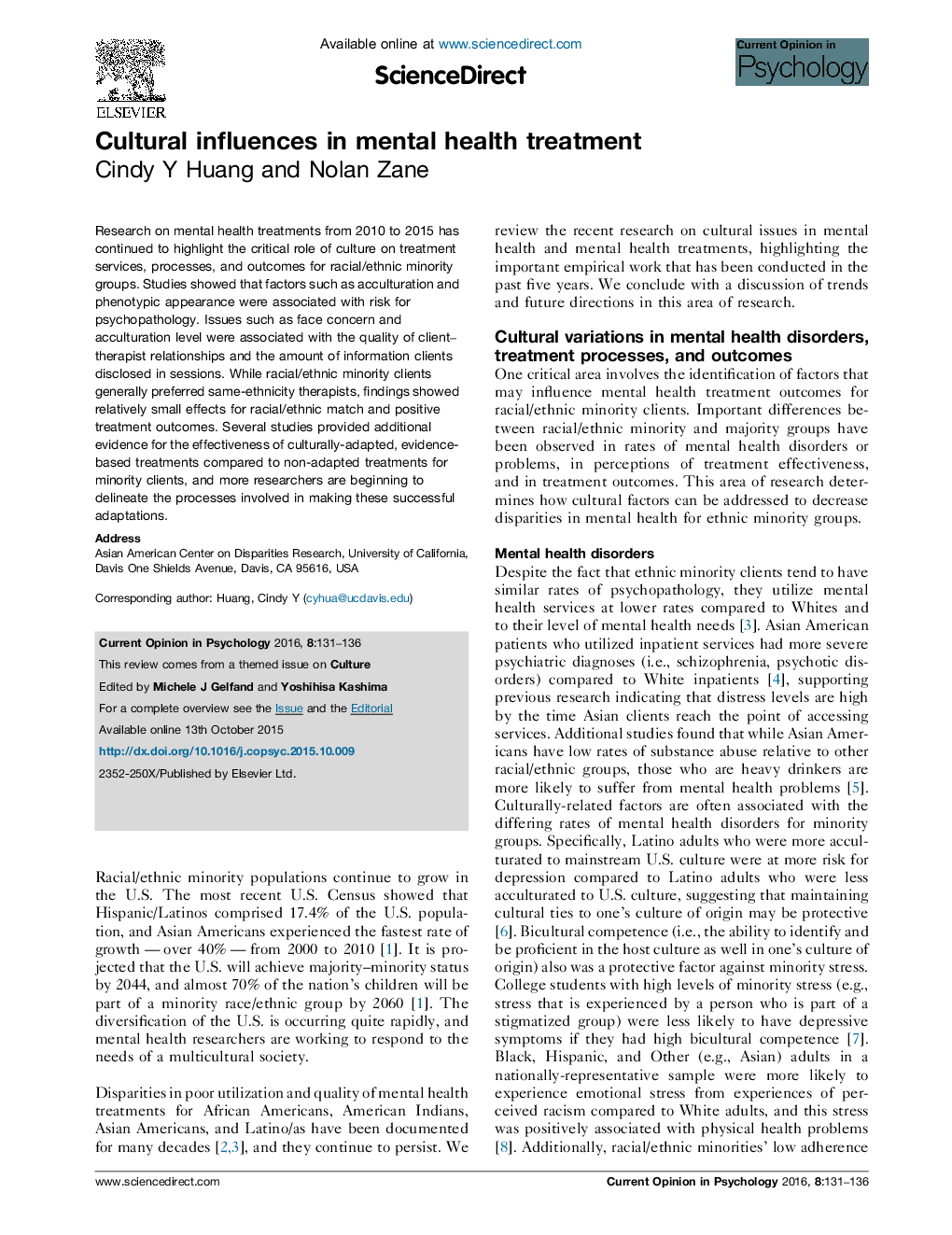| Article ID | Journal | Published Year | Pages | File Type |
|---|---|---|---|---|
| 879310 | Current Opinion in Psychology | 2016 | 6 Pages |
•Face concern and acculturation level negatively impact client disclosure in treatment.•Minority clients preferred to be racially/ethnically matched with their therapists.•Racial/ethnic match had a small effect on treatment outcomes.•Culturally-adapted, evidence-based treatments outperformed non-adapted treatments.•Research on cultural adaptation processes and frameworks are emerging.
Research on mental health treatments from 2010 to 2015 has continued to highlight the critical role of culture on treatment services, processes, and outcomes for racial/ethnic minority groups. Studies showed that factors such as acculturation and phenotypic appearance were associated with risk for psychopathology. Issues such as face concern and acculturation level were associated with the quality of client–therapist relationships and the amount of information clients disclosed in sessions. While racial/ethnic minority clients generally preferred same-ethnicity therapists, findings showed relatively small effects for racial/ethnic match and positive treatment outcomes. Several studies provided additional evidence for the effectiveness of culturally-adapted, evidence-based treatments compared to non-adapted treatments for minority clients, and more researchers are beginning to delineate the processes involved in making these successful adaptations.
